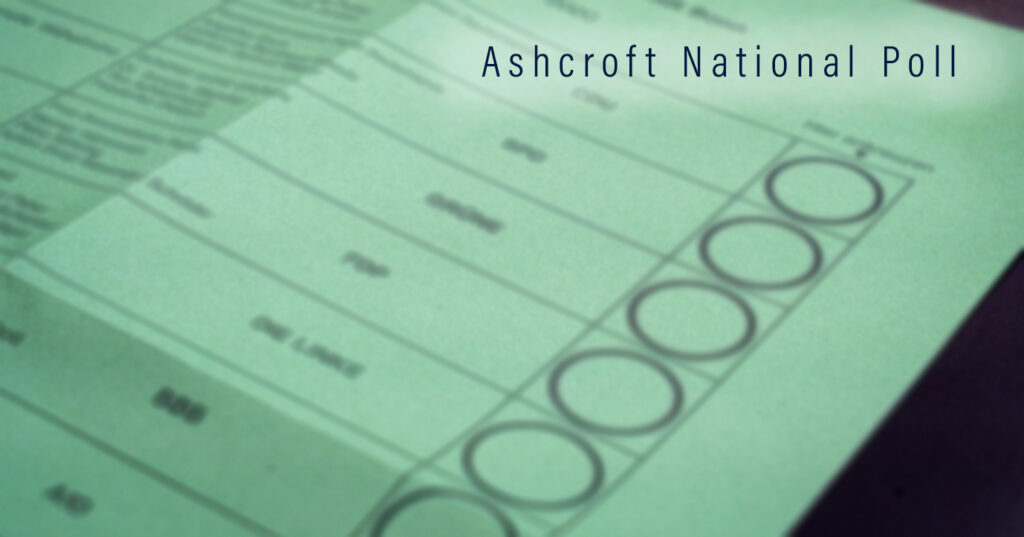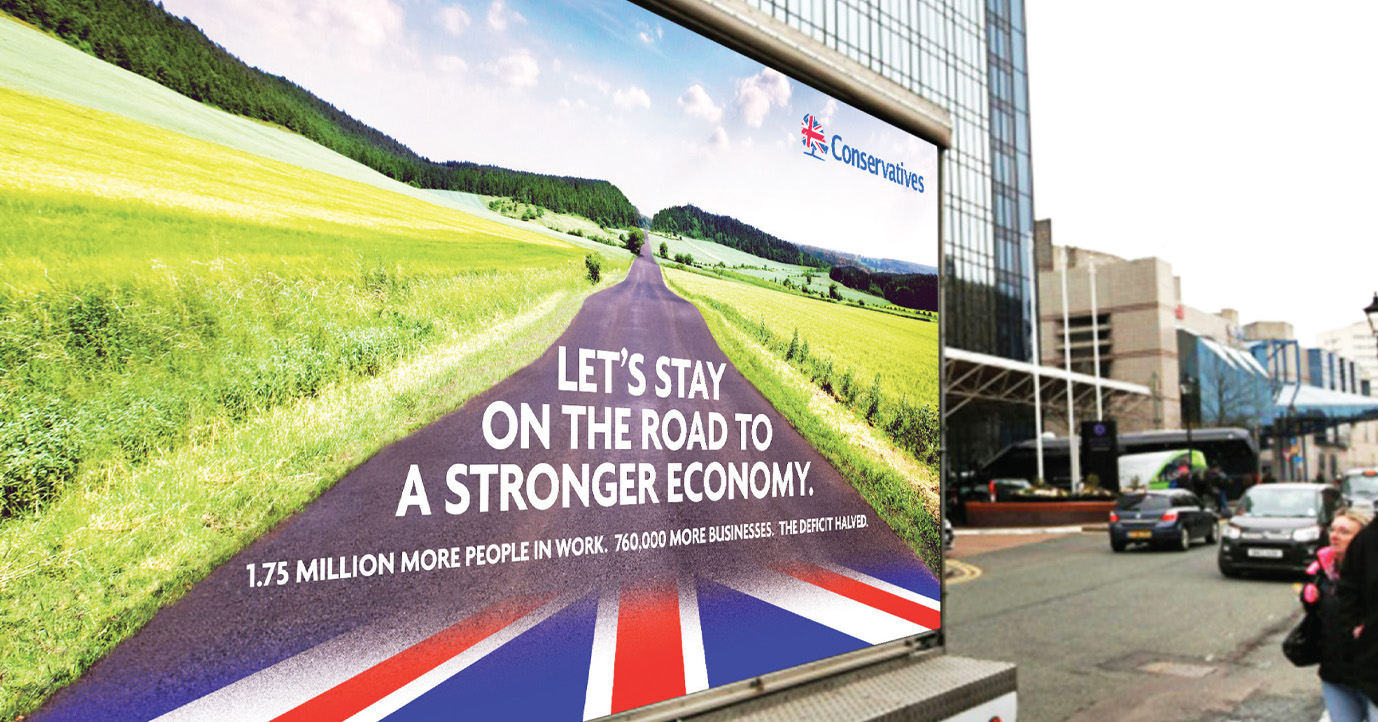
The Conservatives are two points ahead of Labour in this week’s Ashcroft National Poll, conducted over the past weekend. Both parties have seen an increase in their share since last week – the Conservatives up three points to 36%, Labour up one to 34%. The Liberal Democrats are down two points to 6% and UKIP down two to 10%, the party’s lowest vote share in the ANP since its launch last May. The Greens are up two points to 7% and the SNP down two points at 4%.
In other questions I found a small shift in underlying attitudes in favour of Ed Miliband and Labour. David Cameron still well ahead of his main opponent on most of the attributes I tested – representing Britain abroad, making the right decisions even when they are unpopular, having a clear idea what he wants to achieve, being able to lead a team, and doing the job overall – but by a smaller margin than when I last asked in early February. Miliband has extended his lead on “understanding ordinary people”.
When it comes to perceptions of the parties as a whole, I found the Conservatives fourteen points ahead of Labour on being “willing to take tough decisions for the long term”, the same margin as last November. In all other cases the Tory lead had either fallen (having clear ideas, and being competent and capable), or the Labour lead had grown (being honest and principled, sharing voters’ values, being “on the side of people like me”, having its heart in the right place, and standing for fairness). Unlike last year, more said they saw Labour as being “a united party” and being “reasonable and sensible” than said these things were true of the Tories.
UKIP retained their lead on saying “things that need to be said that other parties are scared to say” – though people were nearly three times as likely to say this as to think the party was “reasonable and sensible”, and fewer than one in five thought UKIP were “competent and capable”. The Lib Dems scored highest on standing for fairness and having their heart in the right place, and lowest on being competent and capable.
**********
This week’s focus groups with undecided voters took place in Wolverhampton and Cheadle. Participants said they were receiving a steady supply of campaign literature, not that they seemed very impressed. “I filled in a Labour questionnaire about my three main issues and now all I get is emails and phone calls asking if I’ll deliver leaflets”; “I had one saying our MP had done this, this and this – which did I think was best?” There was also a reminder of the old campaigning truth that you can’t fatten the pig on market day: “Why do they only pop up six weeks before the election? When they send a community newsletter that’s quite interesting, where they say what they’re doing and there are pictures and things you can relate to.”
This is part of the local strategy on which the Liberal Democrats have long relied, with great success. However, their greater national role has complicated the relationship with local voters: while some give them credit for having “tempered the right-wing nut side of the Conservative Party”, others said they would now think more widely: “the Lib Dems were always known to have done a good job in the area. It’s when they go into national things that they’re not so good. I’m happy with Mark Hunter but now I’m thinking I’ve got to look at the national picture too, the bigger picture”.
**********
Most people had noticed David Cameron’s ruling out of a third term as Prime Minister. Only those already the least favourable to him saw this as arrogant (“he’s already thinking, ‘I’ve got this one, I’m thinking about the next one’”). Others were puzzled by it. The statement was probably calculated (“he’s got to have known they were going to make a fuss about it”) but to what end they were not sure, since they did not think it put him in a very good light: “He has got a responsibility to all of us and if he’s already thinking about leaving, why should we think he’s committed to looking after us all? It looks as though he’s thinking to the next stage ahead once he’s gone”. It also opened the troubling question of the succession: “He is planting that seed that he is leaving so you’re asking who will be next”; “There must be a hidden agenda somewhere. Is the idea that Boris is going to come in?” None of those who were seriously considering voting Conservative said Cameron’s statement would be enough in itself to put them off, but many were unsettled and above all surprised by it: “I would have thought he’d keep his mouth shut.”
**********
Labour’s poster warning of future Conservative austerity, which declares “Next time they’ll cut to the bone – the NHS can’t afford the Tory cuts plan”, was best received by those already leaning towards Labour, or at least away from the Conservatives. For these people the message resonated with what they already thought. However, it could only work for those inclined to believe that the Tories would cut more than they had to, not just because circumstances forced them to balance the books. There were some takers for this view: “It’s ideological. Peeling back the state, the ‘I’m alright, stuff you’ attitude”. For most others, “there’s no substance, it’s just a statement. There’s no evidence. I’m sure the Conservatives have said they’re not going to touch the NHS, unless I’ve heard wrong. Labour are just hoping people will take [the poster] at face value”. (Even so, said one Tory sympathiser, “the Conservatives could market it better and not look so proud about it. ‘Another £30 billion! This is great fun!’”) The poster seems designed to galvanise existing Labour support, in which case it is doing its job.
But discussion about the prospect of future cuts revealed some confusion about the need for austerity, and particularly the difference between the debt and the deficit: “They have said we need to cut deeper but the national debt has gone up, apparently. So why have their been cuts? I don’t mind cuts if the debt’s not going up, but…” And if things are so good, why are they so bad? “We’re supposed to be out of recession. I don’t understand why we’ve got so much debt. They don’t explain it properly. With the taxes we pay, you think, how much do they want to drain us?”
**********
The groups had registered the parties’ skirmish over VAT and some had even clocked the PMQs exchange in which Cameron seemed to flummox Ed Miliband by ruling out a rise. A few thought Labour deserved credit for extracting the pledge from the PM: “Miliband almost forced him to say it. Did he just say it to shut them up?” Others were amused by the spectacle – “Ed was done up like a kipper, and then he couldn’t answer on National Insurance” – but nobody found the episode very enlightening. They felt none the wiser about the parties’ plans or how they would be paid for: “Tell us what you are going to do!” Not for the first time, the absence of any substantial ideas – at least that they had noticed – was what most characterised the groups’ view of the campaign.
**********
That being the case, people had to fall back on their view of what the parties were really like. One question – if each party were a house, what kind of house would it be? – gave some interesting pointers. In fact the groups offered some remarkably specific answers. The Labour house is in a terrace, with the front door leading straight onto the pavement. High-vis jackets hang in the hallway, and people in the living room are watching their 50-inch plasma TV, and eating cottage pie with chips and beer. “The furniture is nice, but it’s all on HP”. The Conservative house has nice thick carpets and “one of those kitchen islands”. There are Hunter wellies in the hall and a “posh dog”, probably a chocolate Labrador. But “you can’t get to the door because there is an intercom at the gates” and once inside “you have to wipe your feet”. The Lib Dem house is in a cul-de-sac. There are sandals by the door and solar panels on the roof. This house is also home to a dog (“a mongrel from the rescue centre”) that would be allowed to jump on the sofa. The décor is either plain and beige or “quite odd”, having been chosen by “trendy intellectuals”. The UKIP house is “a bit Hyacinth Bucket” and has “a wrought iron fence all round it to keep everyone out”. There is a flagpole in the garden and the local hunt is gathering outside. The ageing residents (who “don’t get on with their neighbours because they are a different colour”) are smoking heavily and “talking about how it was in their day”. The timer on the stereo is set to play the national anthem every day at noon.


